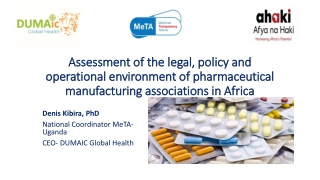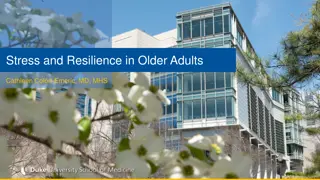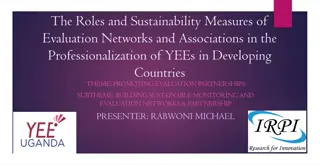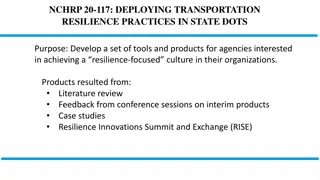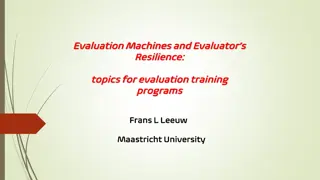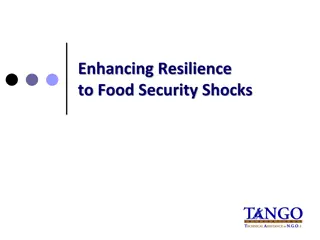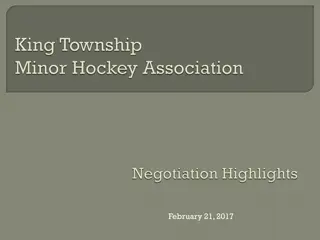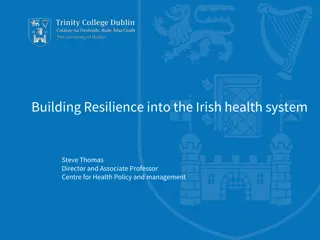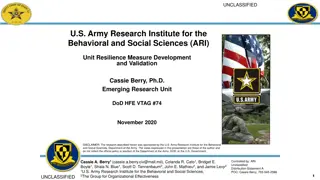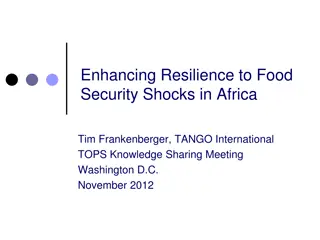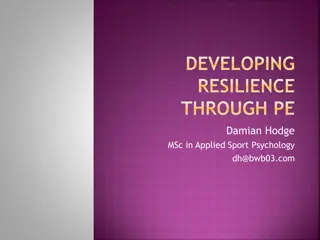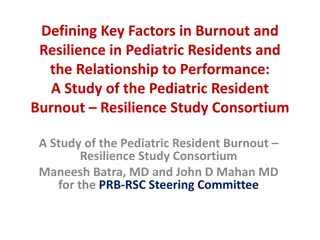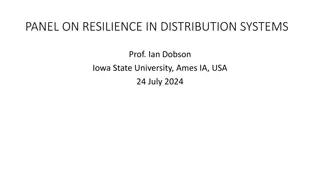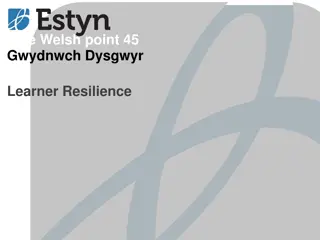Challenges and Resilience of Evaluation Associations: Insights from VOPEs
Despite the growing number of registered VOPEs worldwide, there are significant challenges faced by Evaluation Associations, including tensions between standardization and specificity, balancing diverse interests, and adapting to external pressures. Key observations highlight the need for stronger recognition by governments and the importance of building institutional capacity and professional competencies. The hypothesis suggests that resilience in Evaluation Associations is crucial for the resilience of national evaluation systems. Addressing intrinsic tensions is pivotal in enhancing NEOs' capabilities and seizing future opportunities.
Download Presentation

Please find below an Image/Link to download the presentation.
The content on the website is provided AS IS for your information and personal use only. It may not be sold, licensed, or shared on other websites without obtaining consent from the author. Download presentation by click this link. If you encounter any issues during the download, it is possible that the publisher has removed the file from their server.
E N D
Presentation Transcript
VOPE Intrinsic Tensions Kassem El Saddik, Evaluation Practitioner Founding Member LebEval/ EVALMENA 8/1/2024 1
Despite the growth in the number of registered VOPEs worldwide, many are still at early stages of development and facing serious challenges Challenged by Tension between a straight jacket (blueprint) and contextual specificity Tension in balancing interests (VOPE, stakeholders Gov and funders) Tension between learning brokerage and innovative service provision Recognition by key stakeholders NOEs (VOPEs) are referred to as the evaluation associations that bring together professional evaluation practitioners to advance the profession intermediaries (brokers) between those who undertake (support) evaluations (supply) and those require evidence for decision-making (Demand) Knowledge / learning brokers Platform for advocacy for evaluation
Key Observations! (recurring) The government have increasingly recognized the need for evaluation in national development processes; BUT, this has not been matched with their recognition of the NEOs (VOPEs)! Shifted to assuming greater role in shaping and establishing national evaluation systems, through: Conventional role facilitating/ catalyzing efforts to sustain result-based management practices, leveraging partnerships, etc Capacity building through training, advocacy, setting stds, Q/A To fulfill these roles, NEOs (VOPEs) : 1. Should have strong institutional capacity 2. Should enhance their professional competencies 3. Can t flourish except in a conducive enabling environment
Hypothesis: for the NES to be resilient, NEOs (VOPEs) should be resilient! NES NE Organizations For the national evaluation systems to be resilient, its key elements should be resilient and able to adapt and recover quickly from challenges... Internal Tensions To be resilient, NEO (VOPEs) should address both internal tensions and external challenges... To overcome external challenges, NEO would need to start with their own intrinsic hindering tensions! We should then be reflective, cognizant and critical
Intrinsic Tensions hinder NEOs (VOPEs) Potentials and Opportunities ahead Voluntary format Governance Structure! Capacity to deliver the Missions Meaningful degree of voluntary participation that can push the mandate and missions forward Professionals Practitioners Membership? All those engaged in Evaluation Association of Evaluation Practitioners or open platform for stakeholders Intermediaries (brokers) Mandate? Advance the Profession Meaningful degree of advocacy/ political influence vs defining/ advancing the profession s boundary!









